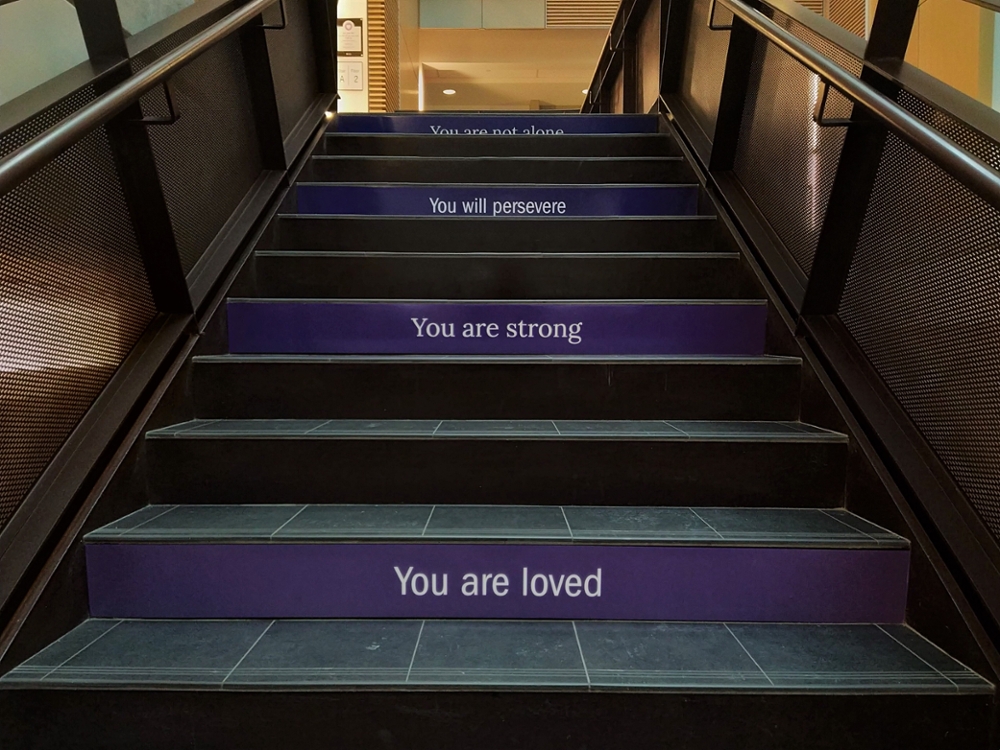Frequently Asked Questions

-
Who can benefit from counselling?
Everybody can benefit from counselling. It can help you appreciate and reach your personal potential to fully benefit from your university experience. We also help students with a variety of mental health difficulties often prompted by usual developmental and life concerns. Some examples include managing conditions such as:
- anxiety
- depression
- identity concerns
- loneliness
- low self-esteem
- relationship/family problems
- stress
- substance abuse
- trauma-related symptoms
In addition, university students seem to be prone to population-specific concerns including:
- academic pressures
- adjustment to university
- career indecision
- difficulties balancing school/work/home life
- homesickness
- procrastination
- test anxiety
-
How do I know if I should seek counselling?
Generally speaking, if a mental health problem is impacting your school work, your relationships, or your ability to carry out day-to-day tasks for more than two weeks, it is a good idea to reach out for help.
If any of the above conditions apply to you, it may be appropriate to seek counselling. Additional signs and symptoms may include:
- Feeling depressed, lethargic or apathetic.
- Feelings of helplessness or hopelessness.
- Internal discomfort.
- Irritability or extreme mood swings.
- Persistent worry or panic attacks.
- Personal problems that interfere with your academic performance, sleep, ability to concentrate, and/or relationships with others.
- Prolonged sadness.
- Thoughts of suicide or wanting to harm yourself.
No problem is too big or too small to seek counselling. It is best to address issues upon identifying them to avoid it from further escalating.
-
How do I make an appointment to see a counsellor?
You can book an appointment through any of the following options:
- Call the Student LifeLine at 905.721.3392,
- Email us at studentlifeline@ontariotechu.ca.
- Schedule an appointment online.
- Visit us at one of our locations.
-
What supports are available after hours?
- Please refer to the I Am In Distress page for more information about after-hours supports.
-
How long will I have to wait for the first appointment?
- It depends on your availability, our availability and an assessment of your needs/risk. Student Mental Health Services is committed to minimizing wait times. We usually accommodate first appointments within one week. If you feel your situation to be urgent, please inform us when you call, email studentlifeline@ontariotechu.ca, or stop by.
-
Why do I have to see an intake counsellor or Student Wellness Coordinator before seeing a counsellor?
In order to reduce wait times for mental health services, we have added a Student Wellness Coordinator to our team as part of our Stepped Care approach. Students who are seeking our counselling services for the first time will be assessed by a Student Wellness Coordinator (SWC). The SWC will listen to your concerns, and offer treatment and resource options, based on the challenges you are facing.
-
How long will counselling appointments take?
- Counselling sessions are up to 50 minutes in length.
-
Is there a cost to counselling services?
There are no additional fees for counselling services as they are included in all university student ancillary fees.
-
Can I bring a friend, family member or significant other to my appointment?
Yes, if you feel more comfortable with another person and that person attends voluntarily.
-
Will my parents be notified of my involvement with Student Mental Health Services?
No. Your information is protected and confidential. Unless required by law, anything discussed in counselling remains confidential. Parents, professors, administrators and others are not provided with any information regarding a student in counselling.
Please be aware that there are exceptions to this rule; there are circumstances in which counsellors are legally obligated to break confidentiality. See our Confidentiality Statement to learn more.
-
What if I want my counsellor to share my information with others?
Your information can only be released with your written permission. If you want it to be shared with others, please speak to your counsellor about this and sign a release of information form. It is up to your discretion what information you do and do not want released. To find out more about privacy and confidentiality standards, please review our Privacy Guide for Students.
-
What if I feel like I don't click or am not comfortable with my counsellor?
You have a right to feel comfortable and safe in counselling. Please talk with your counsellor if you don't feel that way. The process of psychotherapy includes learning to communicate your needs with your counsellor. We encourage you to discuss feelings about your treatment directly with your counsellor, who can then change their interventions to accommodate you. If you don't feel comfortable approaching the counsellor directly, let the Student Life Services Coordinator know that you'd like to make an appointment with a different one.
-
Can I be seen by the university counsellors for long-term therapy?
Student Life provides short-term counselling for students. After your intake meeting, your counsellor will work with you to evaluate what would be the best treatment plan for your personal situation. If you require longer and/or more intensive care than we can provide, your counsellor will discuss options for referrals to more appropriate community resources.
-
Do you prescribe medication?
Student Life counsellors do not prescribe medication. If you are pursuing a medication evaluation, you need to make an appointment with a physician at the Campus Health Centre or see your primary care provider.
